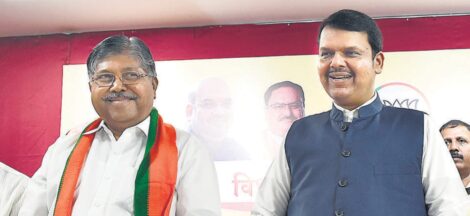By
Ben Chako
Labour’s
relentless focus on forcing a general election to break the Brexit deadlock has
been paying off. Revelations last week that nine government ministers had
instructed their constituency associations to prepare for an early election —
four of them naming February 28 as the day — show that Labour’s strategy has
been working.
The
approach in Parliament has been to maximise difficulties for the Prime Minister
by exposing divisions in the Conservative ranks and make it clear that a
government that cannot get its most significant piece of legislation through
the Commons has lost its mandate and must step down.
Shadow
business secretary Rebecca Long-Bailey has confirmed that the amendment Labour
proposed last night — which would give MPs a vote on whether to hold a
referendum on any deal agreed by Parliament — does not amount to the party
backing a referendum: “It is not stating that the party supports a second
referendum in any way.”
Even
so, the manoeuvre seems a risky one. Labour appears to be taking a step towards
backing a rerun of the vote (as CWU leader Dave Ward wrote in the Mirror this
week, claims that a people’s vote is anything other than a rerun of 2016 in the
hope of getting a different answer are unconvincing).
The
People’s Vote machine claims Remain would win such a vote, citing various polls
(though polls showed Remain winning before the last referendum, and one
commissioned by Best for Britain that was leaked last week indicated that
Labour support would fall if the party backed a second referendum). Less
tastefully, it argues that enough elderly voters from 2016 have died to alter
the outcome, based on the surmise that the old voted for Brexit and the young
against it.
Its
confidence is misplaced. A second referendum could go either way. And the
process itself would be disastrous Jonathan White mentioned of the criticisms
made of the EU over many years by socialists including Bob Crow, Tony Benn, and
in fact Corbyn and John McDonnell, that EU treaties such as Maastricht and
Lisbon amount to a “capitalist constitution” that would severely restrict a
socialist government’s ability to plan the economy in the public interest.
Many
on the left disagree, as evidenced by TSSA leader Manuel Cortes’s article. What
is clear is that appearing to back staying in the EU will make it much harder
for Labour to win a parliamentary majority — the blog Stats for Lefties has
demonstrated that the seats Labour needs to win to form a government, are
overwhelmingly Leave-voting.
Being
subject to EU competition law would provide big corporations with a whole raft
of legal mechanisms to challenge a Labour government’s nationalisations,
procurement policy and more. That might not be the end of the world — we know a
Corbyn government will face institutional hostility at every turn in or out of
the EU and that only a mass movement can overcome that.
But
obtaining that government in the first place means reaching out to Leave and
Remain voters alike. Every nod towards the possibility of reversing 2016’s
decision turns the former away in droves.
Corbyn’s
efforts to reunite the working class, as in his Wakefield speech earlier this
month, stand in stark contrast to the division promoted by the Tory right, the
Prime Minister and the People’s Vote campaign. They reinforce the fact that he
is the only major party leader with any idea of the scale of the problems
facing the country and any notion of how to address them. A general election is
obtainable and necessary — we can’t let up the pressure. (IPA Service)
Courtesy:
Morning Star
The post Early Election Fever Grips Britain appeared first on Newspack by India Press Agency.


